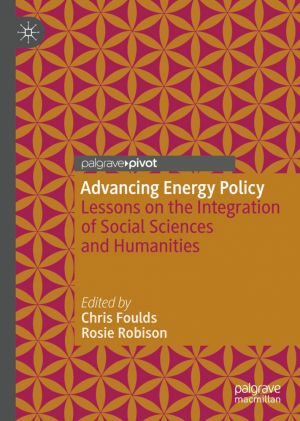- Регистрация
- 27 Авг 2018
- Сообщения
- 39,669
- Реакции
- 619,480
- Тема Автор Вы автор данного материала? |
- #1

This book advocates for the Social Sciences and Humanities to be more involved in energy policymaking. It forms part of the European platform for energy-related Social Sciences and Humanities' activities, and works on the premise that crossing disciplines is essential. All of its contributions are highly interdisciplinary, with each chapter grounded in at least three different Social Sciences and Humanities disciplines. These varying perspectives come together to cover an array of issues relevant to the energy transition, including: energy poverty, justice, political ecology, governance, behaviours, imaginaries, systems approaches, modelling, as well as the particular challenges faced by interdisciplinary work. As a whole, the book presents new ideas for future energy policy, particularly at the European level. It is a valuable resource for energy researchers interested in interdisciplinary and society-relevant perspectives. Those working outside the Social Sciences and Humanities will find this book an accessible way of learning more about how these subjects can constructively contribute to energy policy.
Chris Foulds is Senior Research Fellow at Anglia Ruskin University's Global Sustainability Institute, UK, and is co-lead of SHAPE ENERGY. His interests involve sociotechnical change, energy demand and policy interventions.
Rosie Robison is Senior Research Fellow at Anglia Ruskin University's Global Sustainability Institute, UK, and co-lead of SHAPE ENERGY. She researches sustainable consumption, interdisciplinary working, 'smart' energy policy, and psychosocial interventions.
An impressive take on contemporary energy policy issues with much needed fresh perspectives and an all-star roster of leading thinkers. I hope that every energy policymaker or even student of energy policy reads it. - Benjamin K. Sovacool (Professor of Energy Policy, University of Sussex, UK)
The authors brilliantly demonstrate through a number of approaches, cases and examples, how interdisciplinary Social Sciences and Humanities research could and should be mobilised in EU energy policy and future energy transition research agendas. - Marianne Ryghaug (Professor of Science and Technology Studies, Norwegian University of Science and Technology)
DOWNLOAD:



